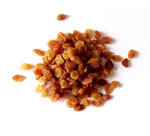Make your Day Better With D
Posted by: admin on: March 12, 2012
Vitamin D: It’s called the “sunshine vitamin” – and it’s crucial to many aspects of your good health. Here’s how to make sure you get enough
Vitamin D deficiency has been a cause of concern in recent times. The National Center for Health Statistics says more than one-third of Americans are vitamin D deficient, and other research suggests that figure could be as high as 50%. It seems even higher in Indian population. Take a read of this article.
Team@CMHF
Why vitamin D is crucial
It may seem as though vitamin D is everywhere these days: Food packages boast it’s inside, supplements jam shelves and health websites wax over its benefits. There are reasons it’s so buzz-worthy: Vitamin D helps control calcium and phosphorus levels in the body, and it plays a role in cell growth, immunity and reducing inflammation. It’s well established that vitamin D deficiency in children can lead to rickets, a bone-thinning condition that can cause deformities. In adults, it can cause osteomalacia — muscle and bone weakness. And new research suggests low D is also linked to cancer, autoimmune problems and heart disease.
Where to get your D
The sun is an excellent source of vitamin D (see below). It’s challenging to obtain vitamin D from food alone, says Elisabetta Politi, nutrition director at the Duke Diet and Fitness Center. Fatty fish such as salmon and fortified dairy products, juices and cereals are good sources, but you’d have to eat them every day to get your daily requirement. Plus, “mushrooms are one of the only D-rich vegetables,” Politi says.
Getting this amount 2-3 times weekly is sufficient for most, but those with a big deficiency may need it.
• Going shirtless delivers more Vitamin D, so less time under the sun is needed.
• Obese and dark-skinned individuals require more sunshine.
• Where you live and your age, skin color and obesity all have an impact a person’s Vitamin D exposure from the sun.
Supplements may be an option, especially if you work indoors, live in a Northern clime or have a family history of skin cancer. People with more pigmented skin take longer to absorb sunlight, as do those who have diabetes or take anticonvulsive drugs
How much do you really need?
Until her study is complete, Manson recommends following the Institute of Medicine’s guidelines that adults up to age 70 should get 600 IUs of vitamin D a day, and those over 70 should get 800 IUs a day.
But other experts say the guidelines hover on the low side. Before you load up on supplements or fish, talk to your doctor. Doses that are too high can lead to kidney stones, warns Carl Lavie, medical director of cardiac rehabilitation and prevention at New Orleans’ John Ochsner Heart and Vascular Institute.
The bottom line: Follow as balanced a diet as you can, get outside a little bit every day, and if you’re feeling out of sync, don’t forget to ask your doc about D.
Ref: http://www.usaweekend.com/article/20111104/HEALTH02/311040011/Make-Your-Day-Better-D
Search
- drchasrani: Difficult to get such a data, authenticated at that. Try Times of India online library
- rakesh pore: hi, where can i get genuine information about "10 most common drugs sold in india?" i want it for a local project
- nilesh dutta: sir, Plz give detail about MBA Sports Management Thanks and Regards


Leave a Reply